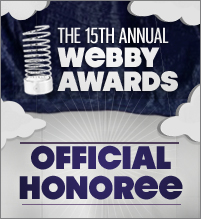A social customer relationship manager (CRM) can help you find prospects and keep tabs on your customers. If you use it conscientiously.
Your customers are your most valuable asset. Lose a customer list irretrievably, and you’re probably out of business.
How are you managing the information you have about your customers? Your understanding of their needs, problems, and preferences deserves better than a paper folder stuffed with notes and invoices.
Social CRM applications are a hybrid of traditional customer relationship managers (CRM), like Salesforce, and social media. They used to be the domain of sales professionals primarily, but any business that wishes to have a comprehensive record of its interaction with customers, seamless links to social media conversations, and a variety of communication tools would benefit.
Their CRM sides help you:
- Create thorough profiles (with contact information as the core),
- Record the history of your interaction with customers (phone calls, meetings, etc.),
- Maintain your schedule using a graphical calendar,
- Manage your task lists with the help of alerts and reminders, and,
- Keep detailed notes.
Social CRM solutions are “social” because of their ability to bring email and social media conversations into the actual contact profile. This consolidation of information is quite powerful.
It’s also quite transformative. One of the problems with the old desktop-based CRM applications is that they required so much manual updating. Salespeople found that they were spending as much time l0gging phone calls and recapping meetings as they were on the actual activity sometimes.
Today’s best social CRM solutions reside in the cloud. Not only does this make them portable — able to be accessed and updated anywhere — but it makes them highly collaborative. Anyone in the company who interacts with customers can easily see their history and provide their own input (social CRM developers build in user access restrictions so, for example, customer service may not be able to read everything someone in sales has entered).
Some of today’s best social CRM solutions include:
Study, Prepare, and Train
Choose your social CRM system carefully. The applications in this list vary greatly in terms of their target market, capabilities, and scalability. So do some serious homework here. Read user reviews and comments on social media as well as the publishers’ product pages.
In many cases, you’ll be able to choose from multiple service levels. You’ll want to subscribe to one that has what you need and some room to grow, but don’t be swayed by impressive-sounding features unless you know they’ll be used.
Prepare your staff for the transition ahead of time. Locate your application’s training resources and, if possible, let employees study up ahead of time. You must build time in for individual and group training, though. Have some evening or Saturday sessions and bring in food.
And stress the benefits of the solution to your team. If you want them to make a serious commitment to making social CRM work, explain exactly what they have to gain. If you show enthusiasm and determination, they’ll follow your lead.

